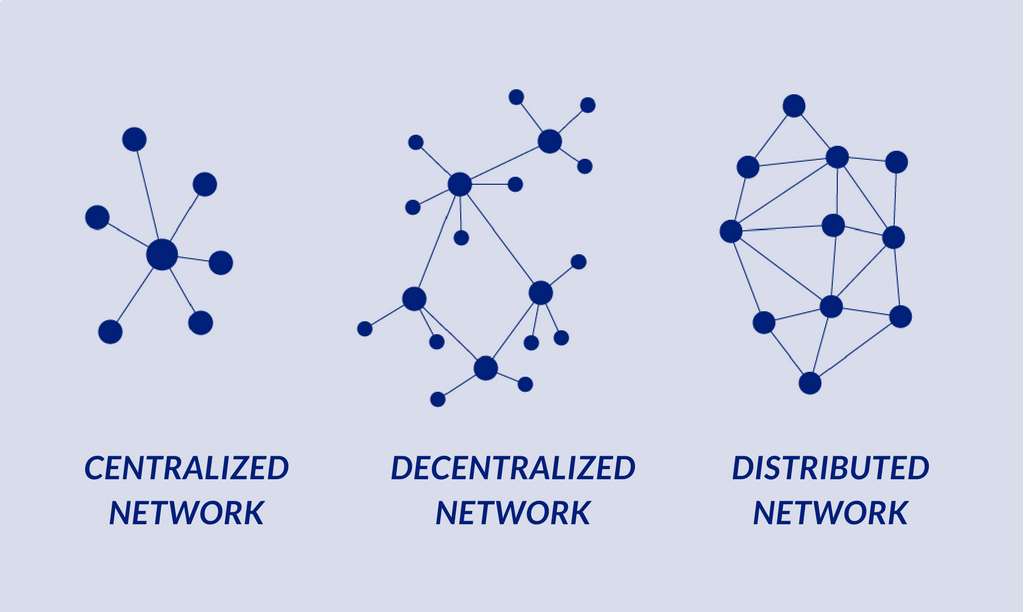New Climate Chain Coalition Launched, Seeking Members
UN Climate Change News, 22 January 2018 – Suppose information important to tackling climate change – such as an industry sector’s greenhouse emissions – were continually updated from a multitude of sources and shared in an open and transparent way. Crucial information would be readily available, up-to-date, transparently displayed and reviewed for accuracy.
This is the promise of so-called distributed ledger technology (DLT), the benefits of which seem limited only by the imagination of people familiar with the technology. The most well-known application of DLT and blockchain technology has been for creation of e-currencies, such as Bitcoin.

Blockchain technology is based on a mutual distributed network, which allows for high-level trust among users and better monitoring over the stored data.
To encourage exploration and eventual use of this technology in support of climate action, the UN Climate Change secretariat initiated and facilitated the creation of the Climate Chain Coalition and contributed to the writing of its charter of principles and values (below).
“The UN Climate Change secretariat recognizes the potential of blockchain technology to contribute to enhanced climate action and sustainability,” said Massamba Thioye, who is leading UN Climate Change’s work exploring DLT and blockchain.
DLT and blockchain could:
- strengthen monitoring, reporting and verification of the impacts of climate action
- improve transparency, traceability and cost-effectiveness of climate action
- build trust among climate actors
- make incentive mechanisms for climate action accessible to the poorest
- support mobilization of green finance.
“To fully and promptly mobilize this potential, broad collaboration among stakeholders is needed to direct resources to priority areas, avoid duplication of effort, and help avoid the pitfalls of working on a new technology with countless unknowns,” said Mr. Thioye.
There are currently about 32 members signed up to the coalition, and membership is open. (See below.) For more information on DLT and blockchain, see How Blockchain Technology Could Boost Climate Action.
+ + + + +
Announcing the Climate Chain Coalition and its Membership Charter
During the One Planet Summit on 12 December 2017 in Paris, France (on the second anniversary of the Paris Climate Change Agreement), a multi-stakeholder group of 25 organizations working on distributed ledger technology (DLT, i.e. blockchain) held a meeting to agree to collaborate and establish an open global initiative called the Climate Chain Coalition (CCC).
DLT and related digital solutions (e.g. Internet of Things, big data) can enhance monitoring, reporting and verification and help mobilize climate finance to scale climate actions for mitigation and adaptation.
The CCC mission is to advance collaboration among members working on issues of common interest, and to help enhance the environmental integrity and results of DLT applications for climate. The CCC membership agreed on shared principles and values to facilitate and guide activities for capacity building, networking, research, governance, demonstrations, and pilot projects.
New members are welcome to join this open initiative and contribute to the transition to a climate-resilient economy aligned with the Paris Agreement. Contact Tom Bauman of ClimateCHECK at tb(at)climate-check.com
Climate Chain Coalition
Members Charter
As a member of the Climate Chain Coalition, our organization agrees to cooperatively support the application of distributed ledger technology (‘DLT’, including ‘the blockchain’) and related digital solutions to addressing climate change by adhering to the following shared principles and values:
1. Alignment with the long-term goals of the Paris Agreement
We recognize the massive challenge and urgency of global transition to a low-carbon and climate-resilient economy and; align with the goals of the Paris Agreement. We will cooperate to support immediate actions by and for blockchain and related digital solutions that contribute to the achievement of this transition;
2. Advancement of DLT for Better Climate Change Solutions
We will cooperate to support the rapid advancement of DLT solutions to address climate change across mitigation and adaptation through enhanced climate actions, including but not limited to the measurement, reporting and verification (MRV) of the impact of all sorts of intervention, and the mobilization of climate finance from diversified sources;
3. Collaboration within the Scope of the Coalition
On the basis of these shared principles and values, we will collaborate on concerted activities and in the dissemination of outputs in relation to DLT solutions and support stakeholder capacity building with regard to the deployment of shared tools and systems to advance climate change governance, especially in developing countries;
4. Technology Neutrality
We recognize that DLT evolves constantly and therefore, maintain a neutral position regarding the applicability of DLT;
5. Commitment to Standardization
We will collaborate to establish basic standards in the development of related tools in support of the efficacy of DLT applications for climate change governance;
6. Dissemination of DLT Benefits
We will collaborate on DLT-related solutions to be developed in the interest of cost-effectiveness, integrity, transparency, and empowering stakeholders in socio-economic systems;
7. Fraud Mitigation
We will collaborate on a proactive strategy to identify and seek to mitigate fraudulent activities associated with the application of DLT in climate change and sustainability governance in general, as appropriate;
8. Responsibility for addressing challenges attributable to DLT applications
As organizations concerned about environmental integrity generally and climate change specifically, we recognize some negative effects and current challenges of many DLT applications (in particular those using the blockchain with proof of work consensus) regarding their levels of energy consumption and GHG emissions. We are transparent and forthcoming while we actively seek appropriate solutions to address these challenges;
9. Sustainable Development Goals
We recognize that climate change is one of the Sustainable Development Goals (SDGs) and will encourage the development of DLT-based innovations for climate change which can simultaneously contribute to the achievement of SDGs.
- - - - -